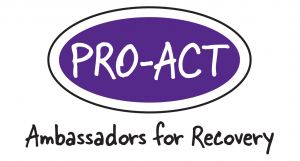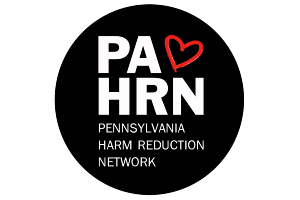Advocacy
Matt has been working with PA Groundhogs, a community organization that offers free street-to-lab drug checking designed to mitigate public health threats from the influx of new and potentially dangerous synthetic drugs in PA and beyond. Matt built an online system to manage chain of custody issues and to provide real-time reporting of test results.
Amy and Matt have joined the Council of Southeast Pennsylvania's PRO-ACT advocacy committee. PRO-ACT works to reduce the stigma of addiction, ensure the availability of adequate treatment and recovery support services, and influence public opinion and policy regarding the value of recovery.
Matt has been appointed to the board of the Bucks County Drug & Alcohol Commission. BCDAC is responsible for overseeing prevention, intervention, treatment and recovery support services for the residents of Bucks County.
We work with the PA Harm Reduction Network to advocate for the legalization of drug testing strips, which can be used to determine if drugs have been mixed or cut with fentanyl or other deadly contaminants so that people who use drugs can take steps to reduce their risk of overdose. We are now working with our state legislators to legalize syringe services programs to reduce the risks of blood-borne infections, help prevent overdoses, and aid persons suffering from substance use disorders to find the support that they need.
Addressing the Gaps in Medical Care
Amy and Matt are working with the Bucks County Drug and Alcohol Commission to share our story about Jamie's experience with substance use disorder and to educate medical professionals about the gaps in medical care that contributed to our loss.
We prepared this video to share with medical professionals in the hope that it will help make a difference in how others suffering from SUD are treated.
Our thanks to Rod Ammon and our friends at Stonehouse Media for helping us produce this video.
Help Make a Difference
Over 112,000 people died from an overdose in the last 12 months, and the situation is not getting better. We need to raise awareness, break the stigma and prejudices surrounding substance use disorders, and help the victims of this public health crisis.
Here are some simple ways that you can help make a difference:
- Medication for Opioid Use Disorder (MOUD) is the gold standard for treatment, yet federal and state regulations create barriers to delivering MOUD to those who need it. Contact your U.S. representative and senators and ask them to support initiatives such as the Modernizing Opioid Treatment Access Act.
- Does your school district offer evidenced-based drug prevention programs to middle school and high school students? Coming out of the isolation and stresses of the pandemic, our youth are experiencing rising rates of mental health issues, and substance use rates are following. If your school administrators think that their students don’t have substance use issues, they are wrong. Talk to your school board and demand that they invest in drug prevention and mental health education.
- Does your primary care physician screen for and treat substance use disorders? If not, talk to your doctor about including brief screening questions about patient’s drug use as part of any wellness visit. The opioid epidemic is a public health emergency that is being ignored by our primary care systems, yet primary care physicians are in the best position to provide the continuum of care needed for this chronic disease.
- Does your hospital emergency department (ED) provide medication assisted treatment (MAT) for patients who present with an opioid use disorder? Does your ED refer patients to recovery specialists? An emergency department visit is a critical opportunity to help a patient with a substance use disorder find a path to recovery, and medication assisted treatment in combination with counsel from someone with lived experience is a proven path to success. Talk to your hospital administrators about MAT and recovery specialist referrals.
- Do you have a supply of naloxone? Naloxone, including NARCAN® nasal spray, is a drug that reverses an opioid overdose. It saves lives. Even if you don’t think there is anyone in your household who is at risk of an opioid overdose, keep a supply of naloxone on hand and bring it with you wherever you go. Find out how to get naloxone here.
- Are syringe services programs legal in your state? Syringe Services Programs (SSPs) are administered by community-based organizations, health care providers, and VA clinics and make syringes available to persons who inject drugs and provide wrap-around services including HIV and HCV testing and vaccination, wound care, and referrals for treatment and recovery services. 30 years of research have shown that people who participate in syringe service programs are 5 times more likely to seek treatment and 3 times more likely to reduce or end their drug use, and they avoid blood-borne infections resulting from needle sharing. If SSPs are not legal in your state, contact your state legislators and demand that they legalize SSPs.
If you would like to discuss other ways that you can help, please send us an email.





